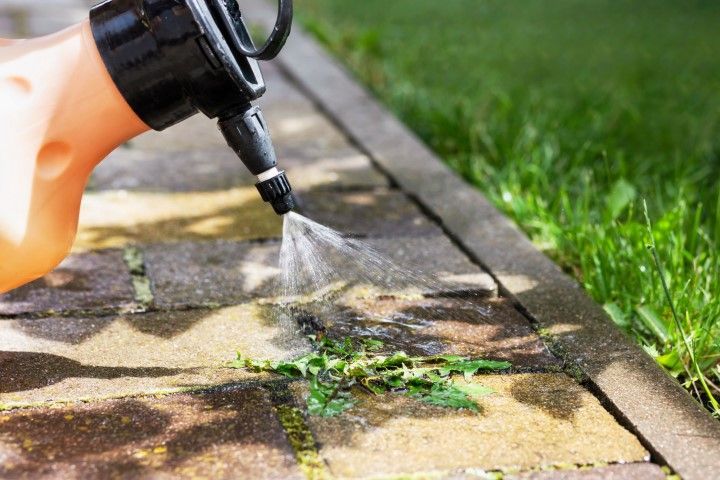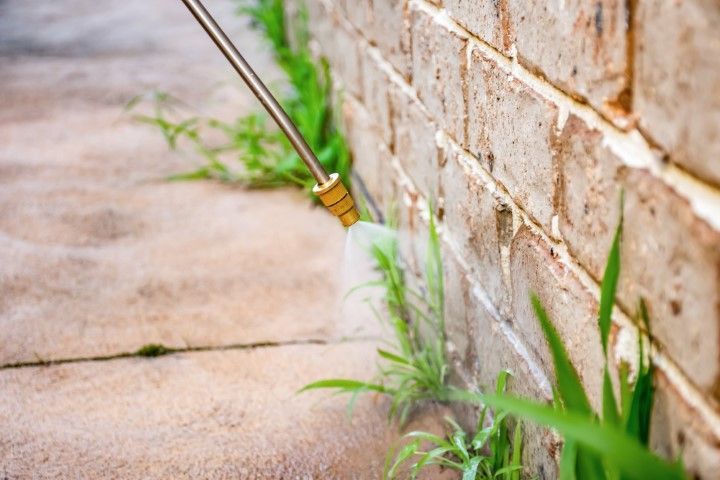Weed Control and Prevention in Glendale CA
Weeds can be more than just an eyesore in your yard or garden. They compete with your plants for water, sunlight, and nutrients. The warm climate creates the perfect conditions for weeds to spread fast if left unchecked. That is why understanding the importance of timing when it comes to weed control and prevention in Glendale, CA is essential. Applying the right methods at the right moment can save you time, money, and effort while keeping your landscape clean and healthy all year.
Stopping Weeds Before They Grow
One of the best ways to control weeds is to stop them before they even sprout. This is called pre-emergent weed control. Applying pre-emergent herbicides early in the season helps create a barrier that keeps weed seeds from growing. The best time to do this is often in late winter or early spring before the soil warms up too much. Acting early prevents weeds from getting a head start, which means you will face fewer problems later in the year.
Targeting Young Weeds When They Are Weak
If you miss the pre-emergent window, the next best step is to act when weeds are still young. Young weeds have shallow roots and are easier to pull or treat with post-emergent herbicides. Timing is critical here because once weeds mature, they develop stronger roots and can spread seeds. Regular inspections of your yard help you catch these small weeds early. Removing them at this stage reduces the chances of them coming back stronger.
Timing Treatments to Match Weed Growth Cycles
Different types of weeds grow in different seasons. For example, cool-season weeds tend to appear in fall and winter, while warm-season weeds grow in spring and summer. Knowing the growth cycle of common weeds allows you to plan treatments more effectively. Instead of applying weed control at random times, you can schedule applications to target weeds at their most vulnerable stages. This smart timing increases success rates and reduces the need for repeated treatments.
Protecting Your Landscape Year-Round
Weed control is not a one-time job. Keeping your yard clear of weeds requires year-round attention and the right timing. Regular maintenance, like mowing, mulching, and watering properly, helps prevent weeds from gaining ground. Seasonal treatments timed correctly ensure that new weeds do not take over. Staying consistent with weed control efforts during every season means your landscape stays healthy, attractive, and safe from damage.
Timing is everything when it comes to weed control. If you need help protecting your property, our team is ready to assist you. We have the experience and knowledge to create a weed control plan that fits your needs and follows the right schedule. Don’t wait until weeds become a big problem. Contact us today to learn more about our services and how we can help you keep your yard beautiful and weed-free all year long.
Get a Free Estimate Today
Sign up to our newsletter
Chemical vs. Organic Weed Control Methods: Pros and Cons
Weeds can quickly take over gardens, lawns, and farms if they are not controlled in time. To manage them, people often choose between chemical and organic methods. Both approaches have benefits and downsides, and knowing what they are can help you pick the right option for your space. Whether you care about safety, cost, or results, it helps to compare these two methods side by side.
Effectiveness
One clear advantage of chemical weed control is that it works fast. Many chemical herbicides kill weeds within days or even hours. This makes them appealing if you need a quick solution or have a severe weed problem. In contrast, organic methods—like mulching, vinegar sprays, or manual removal—usually take more time to show results. However, organic approaches can still be effective over the long term, especially if applied regularly.
Environmental Impact
Chemical herbicides can harm the environment if used without care. They may leach into the soil or run off into nearby streams, affecting plants and wildlife. Some products also damage helpful insects like bees. On the other hand, organic weed control is often safer for the environment. For example, pulling weeds by hand or using natural substances like corn gluten meal does not leave toxic residue. If protecting local ecosystems is important to you, organic methods are generally the better choice.
Cost and Convenience
When it comes to convenience, chemical weed killers are hard to beat. You can spray them and move on to other tasks without much effort. But the cost of chemical herbicides can add up over time, especially if you have a large property. Organic methods may seem cheaper because you can often use materials you already have, like cardboard, mulch, or boiling water. However, they require more labor and commitment, which not everyone has time for.
Health and Safety
Chemical weed control products often carry warnings because they can irritate the skin, eyes, or lungs. If you have kids or pets, you must take extra care to keep them away from treated areas. Long-term exposure to some chemicals may also pose health risks. Organic weed control is usually much safer for people and animals. While some natural products like strong vinegar can still irritate skin, the risks are generally lower compared to synthetic herbicides.
Choosing the best way to control weeds depends on your goals, budget, and values. If you are unsure which method is right for you, we are here to help. Our team can guide you through the pros and cons of each approach and recommend a solution tailored to your needs. Whether you prefer the speed of chemical treatments or the peace of mind of organic methods, we can make sure your property stays healthy and weed-free. Contact us today to learn more or to schedule a consultation. Let’s work together to keep your space clean, safe, and beautiful.
The Role of Soil Health in Natural Weed Prevention
Healthy soil does more than help your plants grow strong. It also plays a key role in keeping weeds under control naturally. Many gardeners and farmers struggle with unwanted plants that steal nutrients and space from crops or flowers. Instead of relying on chemical sprays, improving soil health can create conditions where weeds find it hard to thrive. By understanding how soil supports good plant growth and limits weed growth, you can maintain a cleaner, more productive garden or field.
Creating Dense Plant Cover
When your soil is rich in nutrients and organic matter, your desired plants grow thick and healthy. A strong plant cover shades the ground and blocks sunlight from reaching weed seeds. Without enough light, many weed seeds cannot sprout or grow well. Good soil encourages root systems to spread wide, which fills spaces that weeds might otherwise occupy. In this way, soil health supports a natural shield against weeds.
Supporting Beneficial Microorganisms
Healthy soil is full of life you cannot see. Tiny organisms such as bacteria, fungi, and insects help break down organic matter and release nutrients. These organisms also outcompete harmful microbes and suppress weed seed growth. Some helpful fungi form close bonds with plant roots, improving nutrient uptake and making plants more vigorous. Weaker weeds struggle to get established in such an active, balanced soil environment.
Balancing Soil Moisture
Proper soil structure holds moisture without becoming soggy. When soil retains just the right amount of water, your crops or garden plants get what they need to stay strong. Weeds often take advantage of compacted or overly dry soil, where stressed plants leave bare spots. Improving soil health through compost, mulch, and regular care ensures water stays available for your desired plants. This balance makes it harder for weeds to exploit weaknesses in the system.
Regulating Soil Nutrients
Nutrient-rich soil helps your plants grow quickly and close gaps before weeds can invade. It also limits the type of weeds that thrive in nutrient-poor areas. For example, some aggressive weeds prefer soils low in nitrogen. By keeping your soil balanced and fertile, you can make conditions less favorable for weeds. Regular soil testing, organic fertilizers, and cover crops all help maintain the right nutrient levels.
Natural weed prevention starts with building healthy soil that supports your plants and discourages unwanted growth. If you want to learn more about how soil health can help you keep weeds under control, our team is here to assist you. We offer guidance, soil improvement services, and practical tips to transform your garden or fields into thriving spaces with fewer weeds. Contact us today to get started on a plan that fits your goals. Together, we can create a strong foundation for healthy plants and a cleaner, more beautiful growing area without heavy reliance on chemicals.


